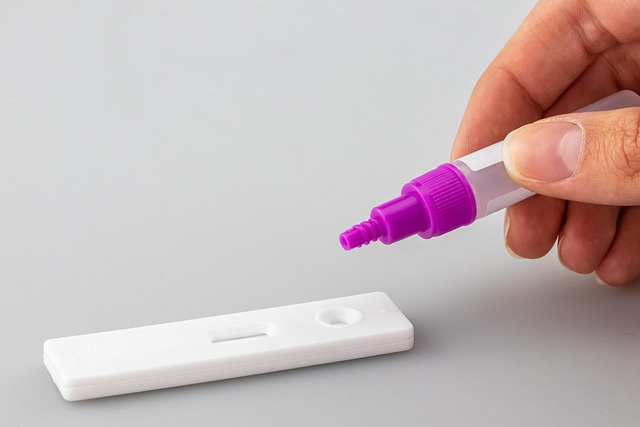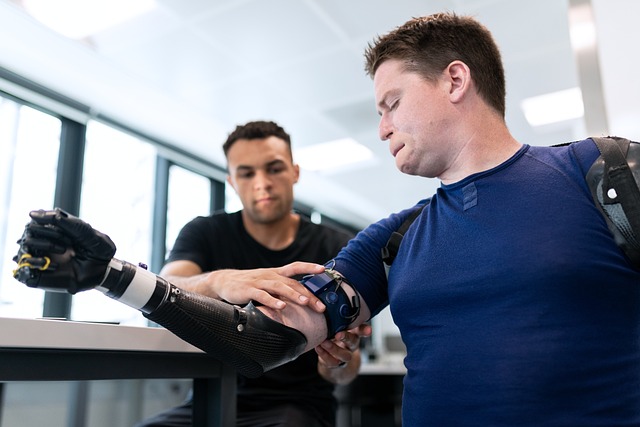Comprehensive thyroid testing involves analyzing blood hormones like T4, T3, and TSH to assess metabolism and regulate energy. Saliva testing offers a non-invasive alternative, detecting subtle imbalances but requires proper handling. While convenient, saliva tests may not match blood's accuracy in complex cases; personal preference and medical advice guide selection for effective hypothyroidism management.
“Uncover the nuances of comprehensive thyroid testing with a side-by-side comparison of two prevalent methods: blood and saliva analysis. Delve into the inner workings of blood thyroid testing, where we explore how it measures hormone levels. Then, discover the benefits and considerations surrounding saliva testing, a less invasive alternative. By examining accuracy, convenience, and their respective advantages, this article empowers individuals to make informed decisions regarding their thyroid health.”
- Understanding Blood Thyroid Testing: How It Works
- Exploring Saliva Thyroid Testing: Benefits and Considerations
- Comparing Accuracy and Convenience: Blood vs. Saliva
Understanding Blood Thyroid Testing: How It Works

Blood thyroid testing is a standard method for evaluating thyroid function and health. It involves taking a blood sample to measure various thyroid hormones and antibodies in the bloodstream. This comprehensive thyroid testing provides valuable insights into the overall functioning of the thyroid gland, which plays a crucial role in regulating metabolism.
The process begins with a simple blood draw, typically from a vein in the arm. The collected sample is then analyzed in a laboratory using specialized equipment to quantify hormone levels. Key hormones like thyroxine (T4), triiodothyronine (T3), and thyroid-stimulating hormone (TSH) are measured. These hormones work together to control the body’s metabolic rate, influencing energy production, temperature regulation, and growth. The results of blood thyroid tests can help diagnose conditions such as hypothyroidism, hyperthyroidism, and autoimmune thyroid disease, where symptoms like fatigue, weight changes, or irregular periods may be present. Thyroid antibody test results also play a significant role in identifying autoimmune thyroid disease symptoms, suggesting potential causes for the disorder.
Exploring Saliva Thyroid Testing: Benefits and Considerations

Saliva thyroid testing is a non-invasive alternative to traditional blood tests, offering several benefits for those seeking comprehensive thyroid testing. This method collects hormones directly from the thyroid gland, providing a more direct measure of its function. Salivary testing can detect subtle imbalances that may be missed by blood tests, making it particularly useful for individuals experiencing mild symptoms of thyroid disorders like hypothyroidism or hyperthyroidism. It’s also convenient and less stressful than drawing blood, appealing to those who avoid needles or have concerns about blood draws.
While saliva testing is a promising tool in global thyroid awareness campaigns, there are considerations to keep in mind. The test’s accuracy depends on proper collection and handling of the sample to prevent contamination. Moreover, not all hormones are measured in saliva, so it may not provide a complete picture for complex cases, especially childhood thyroid disorders or conditions linked to chronic fatigue. However, when interpreted by qualified healthcare professionals, saliva testing can offer valuable insights into an individual’s thyroid health, complementing blood-based assessments and contributing to personalized treatment plans.
Comparing Accuracy and Convenience: Blood vs. Saliva

When comparing blood vs. saliva for comprehensive thyroid testing, accuracy is a key factor. Blood tests have long been considered the gold standard due to their precise measurement of hormone levels in the bloodstream. This method provides detailed insights into thyroid function, helping healthcare professionals diagnose conditions like hyperthyroidism and hypothyroidism with high reliability. However, blood sampling can be more invasive and uncomfortable for some individuals compared to saliva testing.
Saliva tests have gained popularity as an alternative due to their convenience and non-invasive nature. They measure hormone levels through a simple spit sample, making it easier for patients to self-collect at home. This accessibility is particularly beneficial for those who experience fear or discomfort with needles. While saliva testing offers a user-friendly approach to how to test thyroid function, it’s important to note that its accuracy may not match blood tests, especially when assessing specific thyroid hormones. Global thyroid awareness campaigns highlight the importance of accurate diagnosis and treatment, prompting individuals to consider both methods based on their personal preferences and medical advice for managing conditions like hypothyroidism diet plan.
In the quest for comprehensive thyroid testing, both blood and saliva methods offer unique advantages. Blood testing provides precise quantitative data, making it ideal for monitoring thyroid hormone levels over time. Saliva testing, on the other hand, offers a non-invasive, convenient alternative with qualitative insights into thyroid function. Considering factors like sensitivity, accessibility, and individual needs, a combination of these methods can provide a holistic understanding of thyroid health, ensuring optimal care and treatment.
